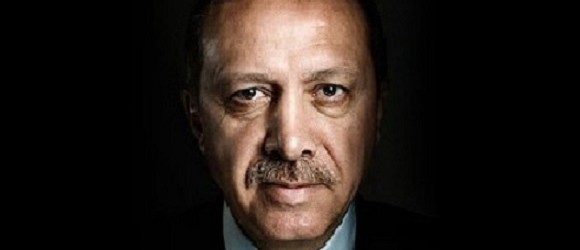“Competitive authoritarianism” is a new concept in Comparative Politics created by Professor Steven Levitsky from Harvard University.[1] Levitsky, together with Lucan Way wrote the book Competitive Authoritarianism: Hybrid Regimes after the Cold War[2] in 2010 and also published an article called “Elections Without Democracy: The Rise of Competitive Authoritarianism”.[3]
By the term “competitive authoritarianism”, Levitsky and Way basically refer to hybrid political regimes that were emerged after the Cold War, combining democratic rules with authoritarian style of governance.[4] Although in the academic world these regimes are often pointed out as transitional governments, reel political experiences show that they can be long-lived and in fact very successful. Electoral success of Vladimir Putin of Russian Federation, Recep Tayyip Erdoğan of Turkey or Viktor Orbán from Hungary are some of the recent examples of competitive authoritarian model.[5] Although Levitsky and Way generally point out African countries in the 1990s to conceptualize this model, in fact similar regimes can emerge in very different contexts and geographies including South America, Balkans, Caucasia or Asia.
According to Levitsky and Way, in competitive authoritarian regimes, “formal democratic institutions are widely viewed as the principal means of obtaining and exercising political authority”.[6] Lewitsky and Way claim that competitive authoritarianism must be distinguished from real democracies since they do not completely fulfill the 4 basic conditions of democracy;
1-) Executives and legislatures are chosen through elections that are open, free, and fair,
2-) Virtually all adults possess the right to vote,
3-) Political rights and civil liberties, including freedom to criticize the government without reprisal, are broadly protected,
4-) Elected authorities possess real authority to govern, in that they are not subject to the tutelary control of military or clerical leaders.[7]
In competitive authoritarian regimes however, violations of these criteria are widespread and serious enough to create an unfair game between the government and the opposition. In Russia and Turkey for instance, the freedom to criticize the government without reprisal is not completely met.[8] It is a fact that competitive authoritarian regimes are not completely authoritarian regimes since they provide basic liberties to their citizens and implement democratic procedures for legitimacy. However, in the implementation of democratic procedures, there are serious frauds and the politicization of the state and bureaucracy create an unfair competition between the government and the opposition.
For instance, a recent report published by the Office for Democratic Institutions and Human Rights (ODIHR) of the Organization for Security and Co-operation in Europe (OSCE) shows that, the funding of the Presidential campaign of Prime Minister Erdoğan in Turkey lacks transparency and the oppositional candidates are given much less chance to express themselves in state-owned tv channels.[9] As in the case of Turkey, competitive authoritarian regimes especially focus on 4 key arenas to keep the status quo; 1-) the electoral arena, 2-) the legislature, 3-) the judiciary, 4-) the media.[10]
In short, competitive authoritarian regimes are a new kind of transitional regimes in which the system reaches out perfection in terms of keeping the President in his or her post by different mechanisms such as the control over the media, politicization of state bureaucracy and electoral fraud. It is also highly questionable that this transitional stage will be transitional since these governments increase their legitimacy and support when they perform good in terms of economic growth, thanks to the neo-liberal free-market economic model whose primary concern is profit, but not democracy. Thus, Turkish version of competitive authoritarianism seems not temporary but permanent unless the country economically begins to stagnate.
Dr. Ozan ÖRMECİ
[1] Steven Levitsky is Professor of Government at Harvard University. His research interests include political parties, authoritarianism and democratization, and weak and informal institutions, with a focus on Latin America. He is author of Transforming Labor-Based Parties in Latin America: Argentine Peronism in Comparative Perspective (2003), co-author (with Lucan Way) of Competitive Authoritarianism: Hybrid Regimes after the Cold War (2010), and co-editor of Argentine Democracy: The Politics of Institutional Weakness (2005); Informal Institutions and Democracy: Lessons from Latin America (2006); and The Resurgence of the Left in Latin America (2011). He is currently engaged in research on the durability of revolutionary regimes, the relationship between populism and competitive authoritarianism, problems of party-building in contemporary Latin America, and party collapse and its consequences for democracy in Peru. For details see; http://scholar.harvard.edu/levitsky/home.
[2] Available at Amazon; http://www.amazon.com/Competitive-Authoritarianism-Problems-International-Politics/dp/0521709156/.
[3] Levitsky, Steven & Way, Lucan A. (2002), Journal of Democracy, Volume 13, Number 2, April 2002. Retrieved from http://scholar.harvard.edu/files/levitsky/files/SL_elections.pdf on 06.08.2014.
[4] Levitsky, Steven & Way, Lucan A. (2002), Journal of Democracy, Volume 13, Number 2, April 2002, p. 51.
[5] Listen Fareed Zakaria’s comments on Putinism and authoritarian regimes based on electoralism; http://globalpublicsquare.blogs.cnn.com/2014/08/04/will-putinism-triumph/.
[6] Levitsky, Steven & Way, Lucan A. (2002), Journal of Democracy, Volume 13, Number 2, April 2002, p. 52.
[7] Levitsky, Steven & Way, Lucan A. (2002), Journal of Democracy, Volume 13, Number 2, April 2002, p. 53.
[8] Örmeci, Ozan (2013), “Turkey: A Difficult Country for Journalists”, Uluslararası Politika Akademisi, Retrieved on 06.08.2014 from http://politikaakademisi.org/turkey-a-difficult-country-for-journalists/.
[9] “OSCE slams use of public funds for Turkish PM Erdoğan’s presidential campaign”, Hürriyet Daily News, Date of Accession: 06.08.2014 from http://www.hurriyetdailynews.com/osce-slams-use-of-public-funds-for-turkish-pm-erdogans-presidential-campaign.aspx?pageID=238&nID=69880&NewsCatID=338.
[10] Levitsky, Steven & Way, Lucan A. (2002), Journal of Democracy, Volume 13, Number 2, April 2002, p. 54.

























































